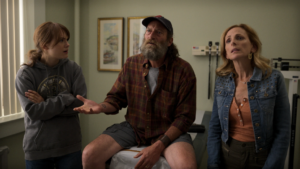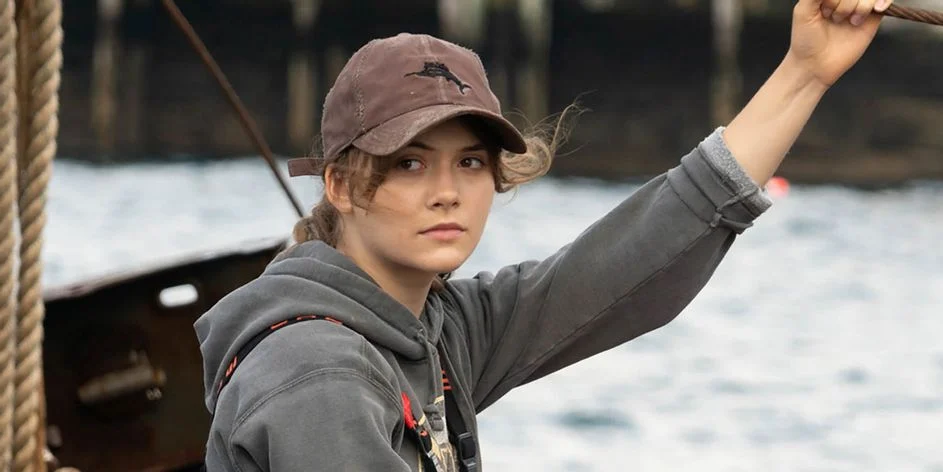Should films get credit for diversity and diversity alone? My answer to this question used to be “no.” I remember reviewing Brokeback Mountain years ago and thinking, nay, stating that were this a heterosexual romance, it wouldn’t have even made it to the screen. While I may not have been wrong in factual discussion, I was way off the mark when it came to the point of the film. Art needs to represent everybody, not just people attracted to Jennifer Lawrence or those who find Kevin Hart funny. This is the biggest problem with Hollywood, no? In the desire to attack a certain demographic, the final product is often watered down for greater inclusivity; that sounds noble, doesn’t it? But it isn’t. It means either the product is generic and lifeless or that the only way the studio wants us to relate to the product is by imagining ourselves within the demographic being serviced whether we are actual members or not.
The point is that diversity is as important in our art as it is in our society because what it is the point of art if not to reflect upon our society? Children of Deaf Adults (CODA) may not be a huge demographic subgroup, but that doesn’t mean a film like this can’t attract a huge audience for as we see in CODA, families run by deaf parents can be just as f***ed up as families with hearing ones, and –hey- isn’t that the greater lesson of art itself? It’s just as important for the dominant and oft catered-to demographic to reflect and imagine itself in the minority; therein lies empathy and understanding. But I digress.
The Rossi family lives in Gloucester, MA and fishes for a living. In other words, their lives would suck even if mom (Marlee Matlin), dad (Troy Kotsur), and older brother Leo (Daniel Durant) weren’t already deaf. The quartet has become increasingly dependent on high-school aged Ruby (Emilia Jones) to communicate with the outside world. Not only does Ruby hear, she’s shrewd and aggressive when it comes to the family business. However, these skills have come at a price: getting up for 3 am trips to the sea means Ruby often arrives at school late, sleep-deprived, and smelling of fish.
Oh, and there’s this little part where Ruby has the best signing voice in the state, but it’s possible no one will ever hear it, because why would a deaf family encourage a child to sing – I mean, other than a desire not to be assholes?
Out of a rare sense of self-fulfillment, Ruby signs up for chorale which is seemingly populated entirely by American Idol finalists – a pretty neat trick for one random high school in Massachusetts. Just a side note –but it matters- it’s not like anybody in the entire school was actually from Massachusetts; among the student body, there was universal failure to use “wicked” as a modifier and not once did the chorale start singing “Sweet Caroline.” I mean, c’mon. At this point, Eugenio Derbez shows up as the kind of music teacher that only movie audiences can stand.
matters- it’s not like anybody in the entire school was actually from Massachusetts; among the student body, there was universal failure to use “wicked” as a modifier and not once did the chorale start singing “Sweet Caroline.” I mean, c’mon. At this point, Eugenio Derbez shows up as the kind of music teacher that only movie audiences can stand.
This film about deaf folks is replete with impressive, and I would guess compensatory, overacting. The first hour of CODA seemed like an exercise in discovering all colorful hand gestures it takes to swear in sign language. I bet I know four or five more than I used to already.
The crux of CODA is that the family doesn’t quite realize exactly how much everybody has been leaning on Ruby and Ruby has not only paid in terms of sacrificing grades and mental well-being, but there’s a great social price to be paid when your family is almost aggressively alienating. Hence, I found the first half of the film very frustrating. The second half, however, was very sweet and impressively musical. When the Rossi family relents and lets Ruby exist on her own terms, the film becomes more pleasing in about seventeen different ways. It’s kinda like the film threw up its figurative hands and signed: “TOO MUCH CONFLICT!” Then promptly resolved three pain points at once and became the film we wanted to see.
Hey, better late than never.
♪I met her in a school down in Gloucester, Mass
Where the kids pronounce a terrible smell as “O-dah”
O-D-A-H, Odah
I saw that Rossi kid making gestures with hands
That is she is a Child Of Deaf Adults [read: CODA]
C-O-D-A, CODA
CO-CO-CO-CO CODA
Well I’m not the world’s most prude of a guy
But I tell you that fam swore up a blue sign with their CODA
Well, I’m not dumb so I do understand
That the title of this film reflects music, my man, hey CODA
CO-CO-CO-CO CODA♫
Rated PG-13, 111 Minutes
Director: Siân Héder (Really? You were born in Massachusetts)
Writer: Siân Héder
Genre: What’s sign language for “hey, we’re f***ed up, too!” ?
Type of being most likely to enjoy this film: People who don’t get seen often enough
Type of being least likely to enjoy this film: People who do
♪ Parody Inspired by “Lola”



